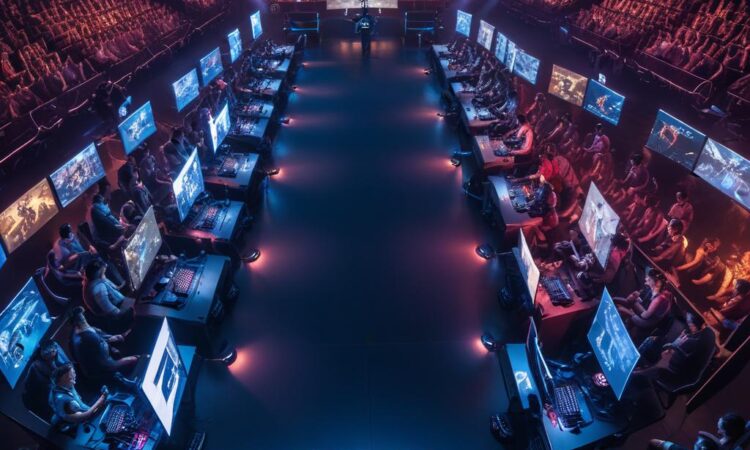The Rise of Esports Organizations
The esports industry is booming, and a key driver of this growth is the rise of esports organizations. These organizations are no longer just teams of gamers; they’re becoming full-fledged businesses, investing heavily in players, infrastructure, and marketing to compete for dominance in the global esports landscape.
From Hobby to Profession
The evolution of esports organizations mirrors the broader evolution of esports itself. In the early days, esports were primarily a hobby for passionate gamers. Teams were often formed organically, with players connecting online and competing for fun. However, as esports gained popularity and viewership, the industry began to professionalize. This led to the emergence of dedicated esports organizations, which started to offer players salaries, sponsorships, and training facilities.
The Business of Esports
Esports organizations are now multifaceted businesses with diverse revenue streams. Key revenue sources include:
- Sponsorships: Brands across various industries are eager to associate themselves with the growing reach and engagement of esports. Sponsorships can range from jersey logos to integrated product placements during broadcasts and tournaments.
- Prize Money: Esports tournaments offer significant prize pools, attracting top players and generating substantial revenue for winning teams and organizations.
- Media Rights: Streaming platforms and broadcasters are paying substantial fees to secure exclusive rights to broadcast esports events, further fueling the industry’s growth.
- Merchandise: Esports organizations have developed their own merchandise, ranging from apparel to gaming peripherals, which is popular among fans and contributes to revenue.
Investing in the Future
Esports organizations are investing heavily in building their infrastructure and talent pools. This includes:
- Training Facilities: State-of-the-art facilities equipped with cutting-edge technology provide players with optimal training environments and support systems.
- Player Development: Organizations are investing in coaching staff, analysts, and mental health professionals to help players improve their skills and performance.
- Marketing and Branding: Organizations are focusing on building strong brands and engaging fan bases through social media, content creation, and community engagement.
The Landscape of Esports Organizations
The esports landscape is fragmented, with a wide range of organizations competing for dominance. Some key trends include:
- Consolidation: Mergers and acquisitions are becoming increasingly common, with larger organizations acquiring smaller teams and expanding their presence across multiple esports titles.
- Global Expansion: Esports organizations are expanding their reach beyond traditional esports strongholds like North America and Europe, establishing teams in regions like Asia and South America.
- Focus on Diversity: Organizations are actively promoting diversity and inclusion within their teams and fan bases, recognizing the importance of representing a wider range of voices and perspectives.
Challenges and Opportunities
Despite the significant growth and investment, esports organizations face challenges, including:
- Competition: The esports landscape is highly competitive, with numerous organizations vying for player talent, sponsorships, and viewership.
- Sustainability: Maintaining profitability and long-term success requires careful management of finances, player contracts, and marketing strategies.
- Player Burnout: The demanding schedule and intense pressure of professional esports can lead to player burnout, requiring organizations to prioritize player health and well-being.
However, these challenges also present significant opportunities:
- Emerging Markets: Expanding into new markets with high growth potential can provide organizations with new revenue streams and fan bases.
- Innovation: Embracing new technologies and platforms can help organizations stay ahead of the curve and engage with fans in innovative ways.
- Brand Building: Developing strong brand identities and fostering loyal fan bases can create long-term value for organizations.
The Future of Esports Organizations
The esports industry is evolving rapidly, and esports organizations are at the forefront of this transformation. As esports continue to grow in popularity and viewership, organizations will need to adapt and innovate to maintain their competitiveness. This includes investing in talent development, building strong brands, and embracing new technologies to reach wider audiences. The future of esports organizations is bright, but it requires strategic planning, financial discipline, and a commitment to excellence.

